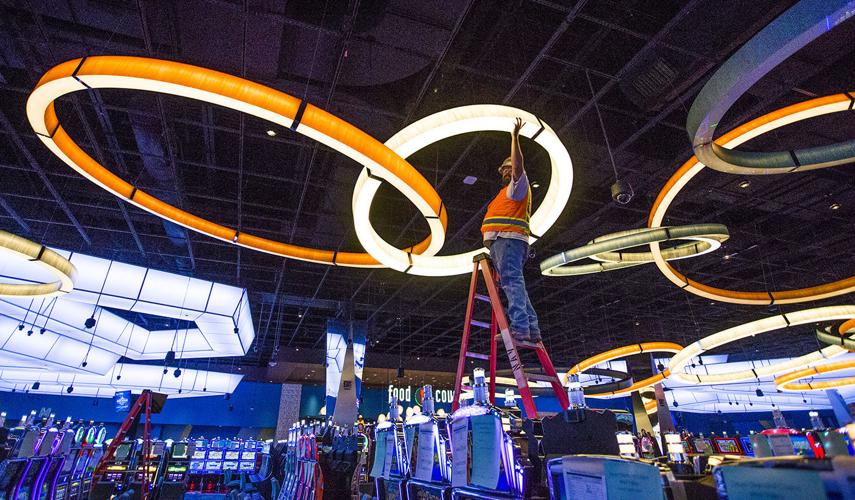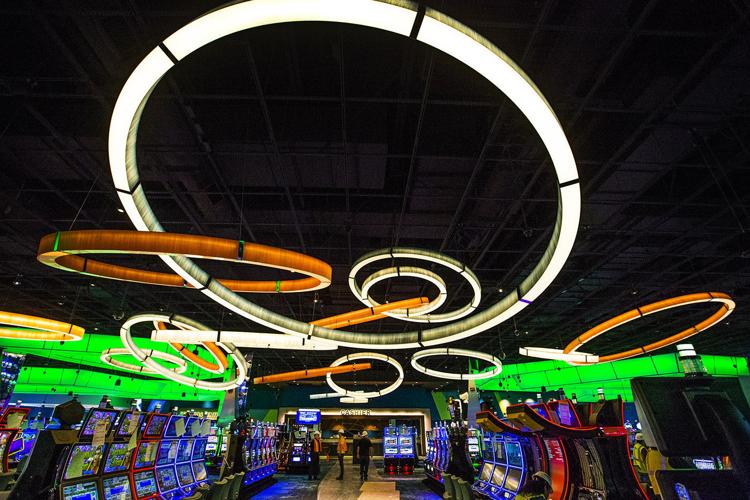Gamblers will have a new venue to test their luck starting Sunday, Dec. 20, when the Tohono O’odham Nation opens a casino in the Phoenix area’s West Valley.
The tribe is scheduled to unveil its fourth casino in Arizona at the edge of Glendale, about a mile north of the Westgate Entertainment District and University of Phoenix Stadium.
The Desert Diamond Casino West Valley marks a turning point in the tribe’s ambitious effort to test the limits of gaming compacts that have governed American Indian casinos in Arizona since the 1980s.
The tribe has prevailed over other casino-operating tribes, as well as an array of municipal, state and federal entities and officials, which have used courts and public forums to challenge the new casino.
Opponents contended that agreements reached by the state and tribes don’t allow the O’odham, whose reservation takes up a large portion of Pima County, to open a casino on land it purchased miles outside of its historical reservation boundaries.
The O’odham countered that federal law allowed it to replace flooded reservation land and the state agreements permitted the tribe to build a casino on the property.
The tribe’s legal gamble has paid off — at least in part. The tribe’s initial temporary casino is set to open for the public on Sunday and to remain open 24/7 indefinitely.
The O’odham are developing 135 acres of former agricultural land at Northern and 95th avenues. Approximately 54 acres have been taken into trust by the U.S. Department of the Interior as reservation land.
The first phase of the development is a low-profile boxy building that will serve as a temporary casino. Later, it will be converted into a warehouse to support a larger permanent casino, hotel and convention-center complex that will be developed within several years.
The privately financed, $200 million temporary casino is set to open with 1,089 gaming machines, which by outward appearances look and operate like slot machines.
The devices’ internal mechanisms differ from true slot machines. They’re actually bingo-based gambling devices. The odds of winning on the bingo-based machines are approximately the same as the odds of winning on traditional slot machines at the tribe’s other casinos, according to a tribe’s slots manager. However, he declined to disclose the odds of either type.
The casino also will debut without poker tables, blackjack tables and alcohol, which are standard features in other casinos in Arizona.
The concessions were made in part because the Arizona Department of Gaming withheld a full Class 3 gaming license, claiming the tribe committed fraud by not disclosing plans for the West Valley casino while negotiating its state compact.
The Arizona Department of Liquor hasn’t granted a liquor license. Casino operators expect to obtain a liquor license around February.
The O’odham will operate the West Valley facility as a Class 2 casino under provisions of the National Indian Gaming Commission, rather than as a Class 3 casino under state guidelines, said casino spokeswoman Treena Parvello.
The tribe will convert the casino to a Class 3 gambling operation if it is successful in court in overturning the state’s ruling, she said. The tribe so far has notched 17 favorable court and federal-agency rulings during its quest to open the casino.
In the meantime, patrons shouldn’t notice the difference between the casino’s bingo-based machines and traditional slot machines, said Don Ayers, slots director for all four of the O’odham’s casinos. The machines feature the razzle-dazzle video, light and sound effects of traditional slot machines.
A few machines in the casino will be linked to a wider network of Indian casinos nationwide and offer $1 million jackpots, which, according to a running scroll on the machines, pay out somewhere every two to four months.
Tribal leaders envision a larger casino, complete with slot machines, blackjack and poker tables, a 400-room hotel with standard and suite options, a full-service bar, 100,000 square feet of convention and meeting space, additional restaurants and retail outlets and other amenities.
Once fully constructed, the complex is expected to create more than 3,000 permanent jobs, both at the casino complex and in the surrounding area, according to the tribe. The casino is projected to generate an economic impact of more than $300 million a year.
Glendale officials took the tribe to court in an effort to halt the development, but dropped the unsuccessful suit after spending millions of dollars on legal fees.
City officials have since taken a more conciliatory position. Glendale reached an agreement with the tribe in August 2014 to support the casino. The tribe committed to paying Glendale $26 million over 20 years.
“From a development standpoint, the addition of a resort and entertainment venue of this nature is complementary to the existing sports and entertainment district,” Glendale economic director Jean Moreno said.






